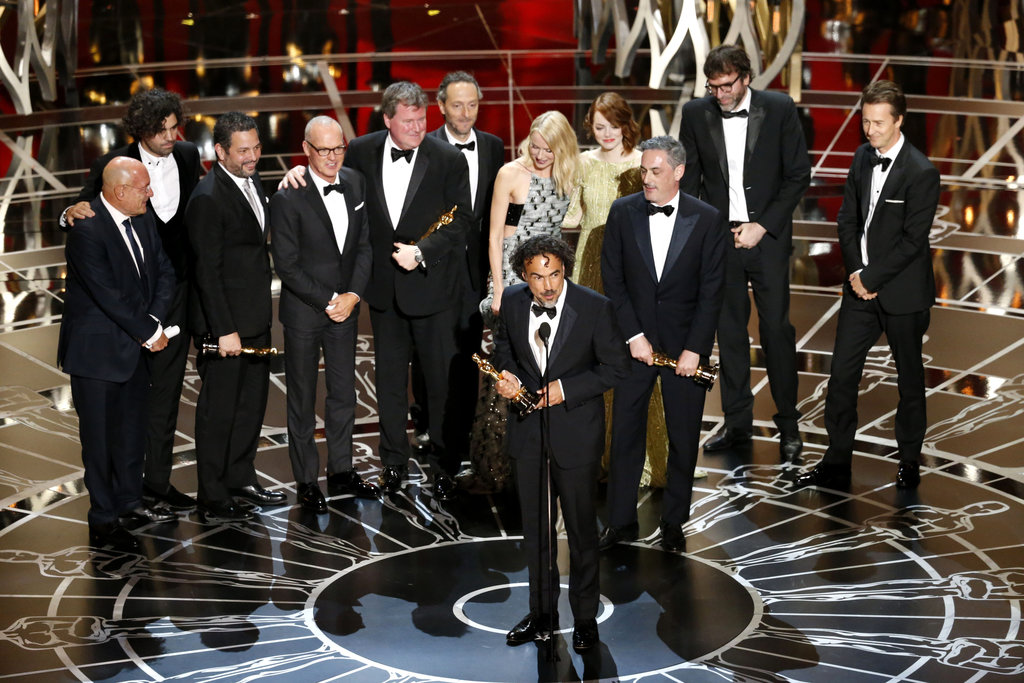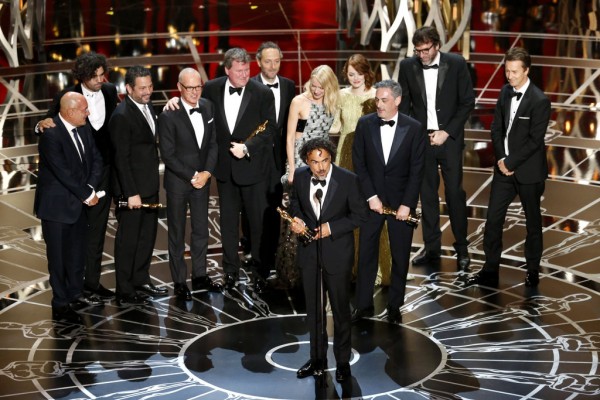
23 Feb “Birdman” Flies at Oscars
Since we are talking Oscars and “Birdman” in the same sentence, I gotta crow. Here’s the lead to my review of the 41st annual Telluride Film Festival.
It’s a bird.
It’s a plane – not.
It’s “Birdman,” a winged version of Superman and all the other hollow comic book super heroes at the center of pow!, wow!, bang, snap, crackle and pop orgies, the “toxic crap” (according to “Birdman’s” fictive New York Times critic) at the center of so many mind-numbing Hollywood blockbusters.
But “Birdman,” the movie is anything but old-hat or formulaic. It is director Alejandro Inarritu’s fifth film and first true masterpiece. The comedic melodrama is also one of the best and brightest movies of the 41st annual Telluride Film Festival, a world-renowned, much-loved paen to what Orson Welles once described as “ribbons of dreams.”
“Birdman” somewhat paradoxically wins hearts and minds – and likely a suitcase full of Golden Statues for the director, star Michael Keaton, the extraordinary ensemble cast, and cinematographer Emmanuel Lubezki of “Gravity” fame, who shoots the film in a simulated long take – and it wins them the old-fashioned way, with a story about a very complicated character and his ongoing struggle with self-esteem, family, money and aging – oh, and a predatory feathery doppelgänger. Sound familiar? It should. Minus the hero’s shadow side in the form of a bird man, the film is not just Riggan Thomson’s story (and the role of a lifetime for Keaton). Look in the mirror – or up at the sky – Boomers: the dying star flaming across the screen as the picture begins could be an apt metaphor for a generation.
Equal parts strange and wonderful, “Birdman” is an electrifying showbiz satire in which Inarritu manages to take no prisoners and finds the Holy Grail of his medium: that elusive sweet spot where intelligent storytelling meets superior (and in this case, groundbreaking) filmmaking and escapist entertainment. It is the “spot” that defines what the Telluride Film Festival is all about: the art, not the business of filmmaking.
Riggan bases his salvation, the journey from mere, over-the-hill celebrity to a real and relevant Broadway actor, on a Raymond Carver short story: “What We Talk About When We Talk About Love.”
Well, “Birdman” is what we talk about when we talk about loving films.
And “Birdman” is one of the many movies on the 2014 Festival program based on the theme of war. Yes war. Because in a case of art imitating life, the picture on the big screen often reflects the zeitgeist and the headlines, which this year have been as dark as pitch…
And for a summary of the Oscars, here is the New York Times story:
For the third time in four years, Hollywood’s top honor went to a story mostly about itself: “Birdman” won best picture at the 87th Academy Awards on Sunday night.
Despite relatively meager domestic ticket sales of $37.8 million, “Birdman” had been the favorite to win best picture, having swept the top prize at banquet after banquet leading up to the Oscars.
Minutes before, Alejandro G. Iñárritu had won best director for “Birdman,” which also collected Oscars for best original screenplay and the cinematography of Emmanuel Lubezki. “Tonight I am wearing the real Michael Keaton tighty whities,” Mr. Iñárritu said, a joke about the long Broadway walk Mr. Keaton, the star, takes in his skivvies during the film.
“Birdman,” about a washed-up actor’s comeback bid, followed two other Hollywood-related winners: “The Artist,” which won in 2012, was the bittersweet story of a silent film actor seemingly left behind by Hollywood’s transition to sound. The next year, “Argo” won with its reality-based tale of a hostage rescue that used a fake film for cover.
Still, no one film this year achieved critical mass in a year that saw all eight of the best picture nominees leave with at least one Oscar.
As expected, Julianne Moore won best actress for her faltering college professor with early-onset Alzheimer’s in “Still Alice,” and Eddie Redmayne won best actor for his portrayal of Stephen Hawking in “The Theory of Everything.”
“I will be its custodian,” an over-the-moon Mr. Redmayne said of his statuette. “I will polish him. I will wait on him hand and foot.”
One of the year’s smallest films, “Whiplash,” with just $11.3 million in ticket sales, became one of the night’s biggest winners…




Sorry, the comment form is closed at this time.